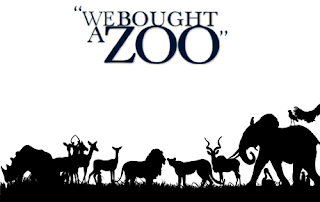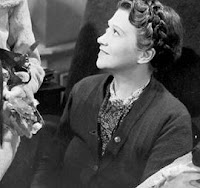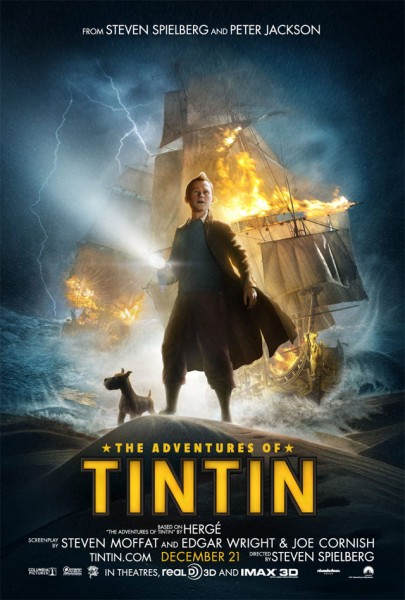Picture (Drama):
• “The Descendants”
• “The Help”
• “Hugo”
• “The Ides of March"
• “Moneyball"
• “War Horse”
• “Moneyball"
• “War Horse”
Prediction score: 4/5
Prediction summary: As will become apparent in the course of this post, I have a feeling that David Cronenberg's "A Dangerous Method" could do well here, given the excellent reviews and recent warm appraisal of his work by the HFPA. After the SAG shut-out, this will be a particularly big test for "Extremely Loud and Incredibly Close," which should be re-titled "Extremely Late and Incredibly Cheeky." Spielberg and "War Horse" don't feel like potential winners of anything anymore, but even if it misses the Academy could still resurrect it, given the obvious advantage of its tearjerking elements.
Prediction summary: As will become apparent in the course of this post, I have a feeling that David Cronenberg's "A Dangerous Method" could do well here, given the excellent reviews and recent warm appraisal of his work by the HFPA. After the SAG shut-out, this will be a particularly big test for "Extremely Loud and Incredibly Close," which should be re-titled "Extremely Late and Incredibly Cheeky." Spielberg and "War Horse" don't feel like potential winners of anything anymore, but even if it misses the Academy could still resurrect it, given the obvious advantage of its tearjerking elements.
Picture (Comedy/Musical):
• “50/50”
• “The Artist”
• “The Artist”
• “Bridesmaids”
• “Carnage”
• “Midnight in Paris”
• “Midnight in Paris”
• “My Week with Marilyn"
Prediction Score: 3/5
Prediction summary: An unusually strong category this year (especially compared to last!) to the extent where I'm only comfortable with the first three picks. After that, "We Bought a Zoo" and "Young Adult" could be outmuscled by the well-reviewed "50/50," or the A-list laden "Carnage." Or else be brushed aside by Simon Curtis' featherweight Marilyn Monroe movie?
Director:
• Woody Allen, "Midnight in Paris"
• George Clooney, "The Ides of March"
• Michael Hazanavicius, “The Artist”
• George Clooney, "The Ides of March"
• Michael Hazanavicius, “The Artist”
• Alexander Payne, “The Descendants”
• Martin Scorsese, “Hugo”
Prediction score: 3/5
Prediction summary: I toyed with including David Cronenberg but I didn't want to go that crazy with the film. Refn is getting many notices with critics, and I reckon the Globes will be much kinder to "Drive" than the SAGs were or the Oscars likely will be. A host of names could pop up here, like Woody Allen, Stephen Daldry, or Tate Taylor.
Prediction summary: I toyed with including David Cronenberg but I didn't want to go that crazy with the film. Refn is getting many notices with critics, and I reckon the Globes will be much kinder to "Drive" than the SAGs were or the Oscars likely will be. A host of names could pop up here, like Woody Allen, Stephen Daldry, or Tate Taylor.
Leading Actress (Drama):
• Glenn Close, "Albert Nobbs"
• Viola Davis, “The Help”
• Viola Davis, “The Help”
• Rooney Mara, "The Girl with the Dragon Tattoo"
• Meryl Streep, “The Iron Lady”
• Tilda Swinton, “We Need to Talk About Kevin”
Prediction score: 3/5
Prediction summary: A Glenn Close snub doesn't seem like the smartest thing in the world to predict after her SAG nomination, but this is a hipper kind of branch. Felicity Jones appears to be more in favour than Elizabeth Olsen, and I've been convinced from the beginning of the season that somebody would give Keira Knightley something given the sheer ferocity of the performance. The other options are Kirsten Dunst and Rooney Mara.
Prediction summary: A Glenn Close snub doesn't seem like the smartest thing in the world to predict after her SAG nomination, but this is a hipper kind of branch. Felicity Jones appears to be more in favour than Elizabeth Olsen, and I've been convinced from the beginning of the season that somebody would give Keira Knightley something given the sheer ferocity of the performance. The other options are Kirsten Dunst and Rooney Mara.
Leading Actor (Drama):
• George Clooney, “The Descendants”
• Leonardo Di Caprio, “J. Edgar”
• Michael Fassbender, “Shame”
• Ryan Gosling, “The Ides of March”
• Brad Pitt, “Moneyball”
Prediction score: 4/5
Prediction summary: When all is said and done, the Globes are about stars. This is one of the starriest actor lineups they can muster this year.
Leading Actress (Comedy/Musical):
• Jodie Foster, "Carnage”
• Charlize Theron, “Young Adult”
• Kristen Wiig, “Bridesmaids”
• Michelle Williams, “My Week with Marilyn”
• Kate Winslet, “Carnage”
Prediction score: 4/5
Prediction summary: Scarlett Johansson was their sweetheart in '03, '04, and '05 (remember "A Love Song for Bobby Long" anyone?) but her spot could easily go to Jodie Foster in a "Carnage" double-dip, Berenice Bejo in a category switchup, or perennial Globe favourites Julia Roberts and Cameron Diaz, who worked this year, which is usually good enough.
Prediction summary: Scarlett Johansson was their sweetheart in '03, '04, and '05 (remember "A Love Song for Bobby Long" anyone?) but her spot could easily go to Jodie Foster in a "Carnage" double-dip, Berenice Bejo in a category switchup, or perennial Globe favourites Julia Roberts and Cameron Diaz, who worked this year, which is usually good enough.
Leading Actor (Comedy/Musical):
• Brendan Gleeson, "The Guard"
• Jean Dujardin, “The Artist”
• Joseph Gordon-Levitt, "50/50"
• Ryan Gosling, "Crazy Stupid Love"
• Owen Wilson, "Midnight in Paris"
Prediction score: 2/5
• Ryan Gosling, "Crazy Stupid Love"
• Owen Wilson, "Midnight in Paris"
Prediction score: 2/5
Prediction summary: My logic: predict Johnny Depp and then if he's nominated you'll at least be happy that you got it right. Unless of course he manages to be included for his performance in the latest "Pirates of the Caribbean" instalment, in which case you can just kill me. Ryan Gosling could be nominated twice if they liked those abs in "Crazy Stupid Love"; Christoph Waltz or John C. Reilly (the Globes like him!) might find themselves here if the "Carnage" love runs free. I don't even want to contemplate a Tom Hanks nomination.
Supporting Actress:
• Berenice Bejo, "The Artist"
• Jessica Chastain, “The Help”
• Jessica Chastain, “The Help”
• Janet McTeer, "Albert Nobbs"
• Octavia Spencer, “The Help”
• Shailene Woodley, “The Descendants”
Prediction score: 3/5
Prediction summary: Will this be where Carey Mulligan lands a major nomination? She's certainly a huge star profile right now. Melissa McCarthy is the biggest lock here after that SAG inclusion, but someone else could well be ousted to make room for Sandra Bullock. Winning Globe, SAG, and Oscar two years ago isn't enough for these people. They want to canonise their Bullock at every opportunity.
Prediction summary: Will this be where Carey Mulligan lands a major nomination? She's certainly a huge star profile right now. Melissa McCarthy is the biggest lock here after that SAG inclusion, but someone else could well be ousted to make room for Sandra Bullock. Winning Globe, SAG, and Oscar two years ago isn't enough for these people. They want to canonise their Bullock at every opportunity.
Supporting Actor:
• Albert Brooks, “Drive”
• Kenneth Branagh, “My Week with Marilyn”
• Jonah Hill, "Moneyball"
• Viggo Mortensen, “A Dangerous Method”
• Christopher Plummer, “Beginners”
Prediction score: 4/5
Prediction summary: Sacha Baron Cohen is well-liked, and let's face it: this category is batshit crazy. Beyond Branagh, Plummer, and (surely) Brooks, there's no telling where the Academy is going to go. I definitely don't see a Nick Nolte nomination happening here, so it's gonna differ from the SAG whatever happens.
Prediction summary: Sacha Baron Cohen is well-liked, and let's face it: this category is batshit crazy. Beyond Branagh, Plummer, and (surely) Brooks, there's no telling where the Academy is going to go. I definitely don't see a Nick Nolte nomination happening here, so it's gonna differ from the SAG whatever happens.
Screenplay:
• "The Artist"
• "The Descendants"
• "The Ides of March"
• "Midnight in Paris"
• "Moneyball"
Animated Feature:
• "The Adventures of Tintin"
• "Arthur Christmas"
• "Cars 2"
• "Arthur Christmas"
• "Cars 2"
• "Puss In Boots"
• "Rango"
Foreign Language Film:
• "The Flowers of War" (China)
• "In the Land of Blood and Honey" (USA)
• "The Kid with a Bike" (Belgium)
• "A Separation" (Iran)
• "The Skin I Live In" (Spain)
Original Score:
• Ludovic Bource, "The Artist"
• Abel Korzeniowski, "W.E."
• Trent Reznor & Atticus Ross, "The Girl with the Dragon Tattoo”
• Howard Shore, "Hugo"
• John Williams, "War Horse"
Original Song:
Original Song:
• 'Hello Hello', "Gnomeo and Juliet"
• 'The Keeper', "Machine Gun Preacher"
• 'Lay Your Head Down', "Albert Nobbs"
• 'The Living Proof', "The Help"
• 'Masterpiece', "W.E." (Madonna!)















